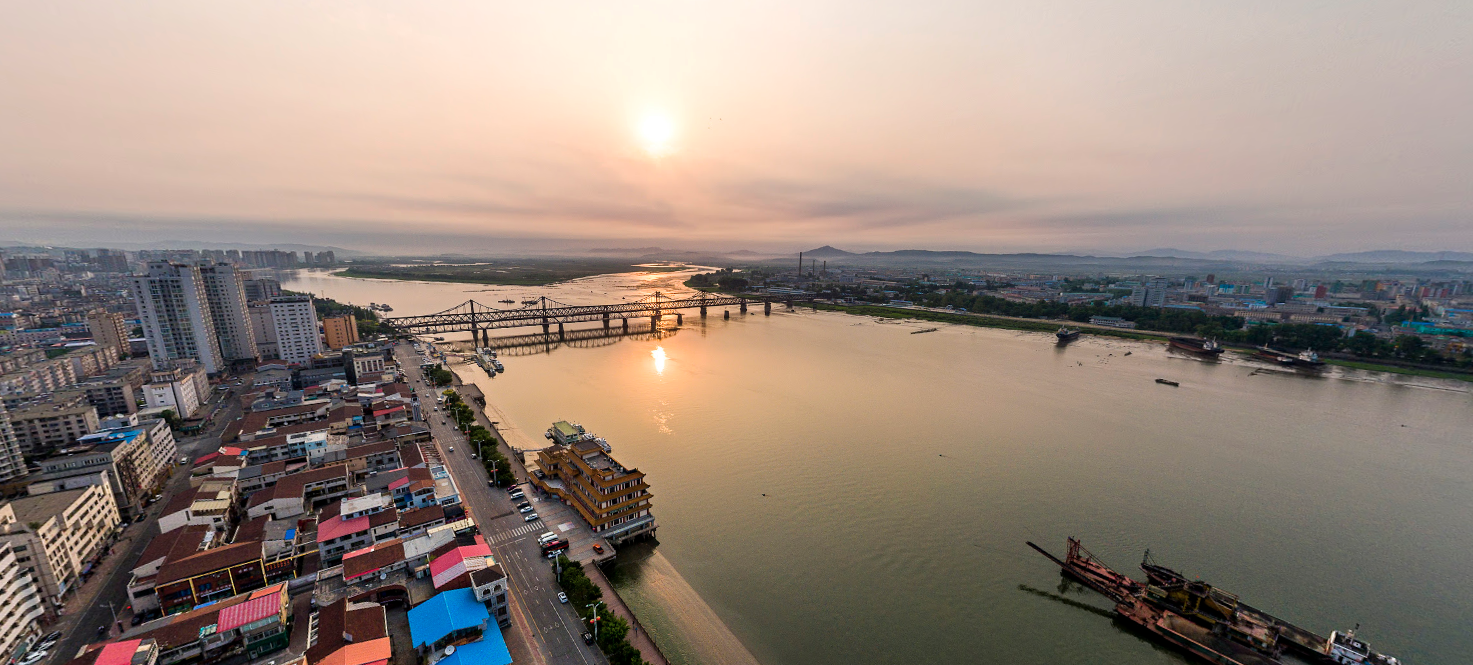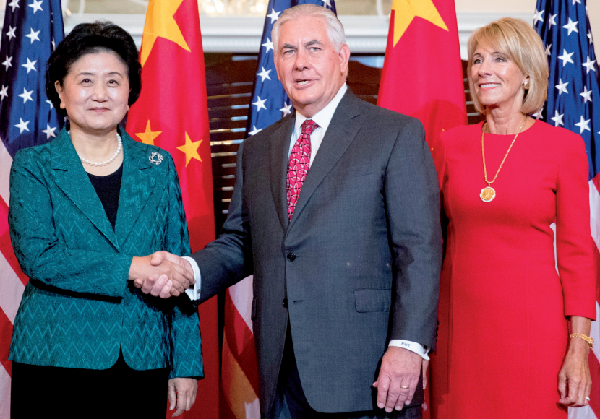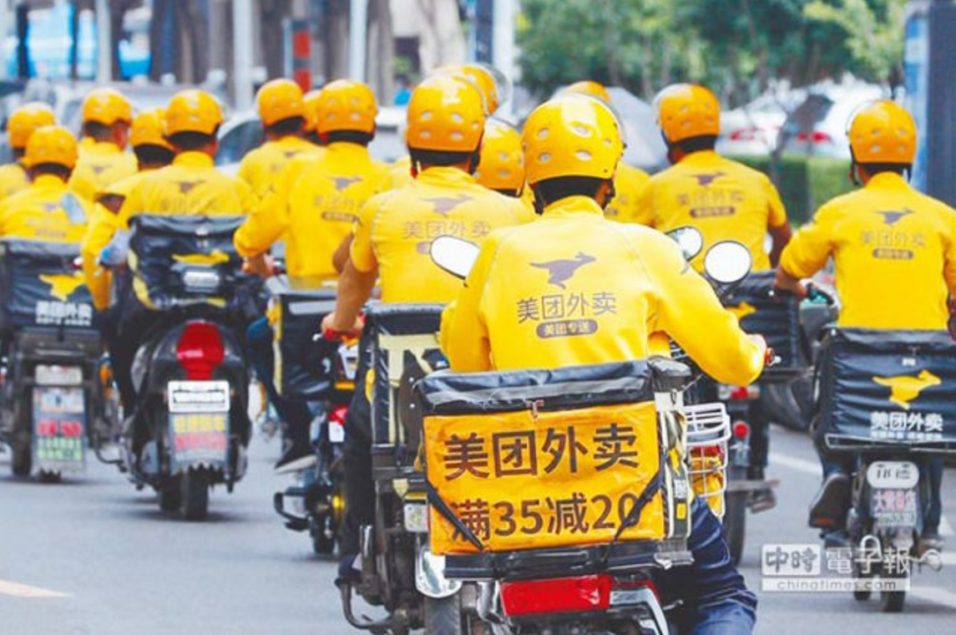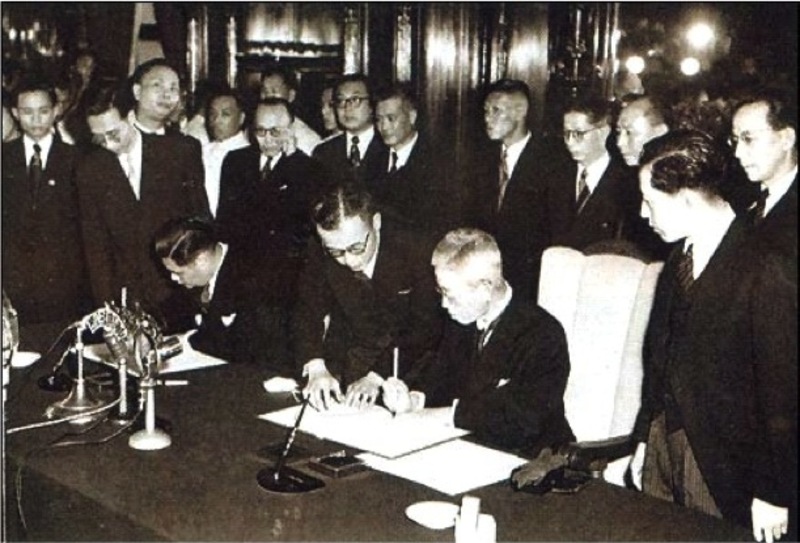
 All Quiet on North Korea's Western Front?
All Quiet on North Korea's Western Front?The city of Dandong is situated near the mouth of the Yalu River. A short drive over the Sino-Korean Friendship Bridge would bring you to the busy trading city of Sinuiju, North Korea, where one can sell Chinese textiles to North Korean traders or buy North Korean crustaceans from fisherman. For obvious reasons, Dandong is a focal point to measure the material effects of UN sanctions, which are designed to pressure North Korea to denuclearize. As U.S. General Dunford said this week, "We're at the phase now where implementation of the sanctions is going to determine whether or not we have a peaceful solution to denuclearization on the [Korean] peninsula."
How well have sanctions been implemented? There have been several great pieces this week asking ordinary people in China what the effects of sanctions have been for their businesses. Chris Buckley at the New York Times traveled from Yali to Dandong along the Yalu River to see how life was being modified by the threat of nuclear war; the photos and vignettes he captures are worth checking out. The overall consensus has been that sanctions are beginning to bite -- at least ordinary individuals. Chinese importers and exporters have reported more stringent customs checks. Chinese seafood processing plants, textile factories, and coal and iron companies are all feeling the pinch, too. In The Washington Post, Simon Denyer quoted Lu Chao, a Korea expert at the Liaoning Academy of Social Sciences, as saying, "Sanctions bring a huge loss to Chinese traders," Lu said. "Many companies doing border trade have gone bankrupt, and their owners run away, leaving people unemployed."
Denyer writes further, "Within North Korea, the economy is almost designed to withstand sanctions. When times are tough, trade will be even more strictly cornered by the military and security apparatus. The ban on textiles, meanwhile, will have a disproportionate effect on women in North Korea who assemble garments."
What about coal trade, though? CNN Money posed a provocative headline asking if China was breaking its promise to not buy North Korean coal, one of its major exports and economic lifelines. In August, China imported 1.64 million tons of North Korean coal. While some have pointed to this as proof of China being an "unreliable partner," there may be a more unembellished reason: the latest UN resolutions didn't compel China to fully comply until September 5th, allowing unfulfilled orders of coal to be completed.
As the Trump administration prepares for Trump's upcoming visit to Beijing in November, where North Korea will inevitably be a principal topic of discussion, understanding the full effects of sanctions on North Korea will take time. In a statement on the U.S.'s North Korean policy before the Senate Committee on Banking, Housing, and Urban Affairs, Susan Thornton reiterated that the U.S. was not seeking regime change or collapse, or a "desire to inflict harm on the long-suffering North Korean people, whom we view as distinct from the hostile regime in Pyongyang." In response, North Korean expert, John Delury tweeted: "Then you're going to have to lift the embargo on basic industries like seafood & textiles, & stop talking about 'total destruction.'"
 U.S.-China Social and Cultural Dialogue in Washington D.C.
U.S.-China Social and Cultural Dialogue in Washington D.C.When it comes to views on China-U.S. relations, Washington, D.C. remains a house divided.
This week, Washington hosted the first-ever Social and Cultural Dialogue (SCD) between China and the United States. Co-chaired by Secretary of State Rex Tillerson and Vice Premier Liu Yandong, this was one of four talks established President Donald J. Trump and Chinese President Xi Jinping in Mar-a-Lago last April. According to the State Department, the talks were held with an "objective of increasing people-to-people ties and mutual understanding between the two nations, and advancing our social and cultural relations consistent with the results-oriented approach of our two Presidents."
The same day, President Trump met with the visiting Vice Premier, and U.S. Secretary of State Rex Tillerson – who has been accused by CFR's Ely Ratner of being a bit too much of a "China-phile" – boarded a plane to Beijing. He will spend three days meeting with senior Chinese leaders. Unsurprisingly, many commentators believe that conversations will focus heavily on North Korea and trade. According to Tillerson's office, the Secretary of State's visit is primarily intended to reaffirm the Trump Administration's "commitment to further broaden and enhance U.S. economic and security interests in the Asia-Pacific region," and will lay the groundwork for Trump's upcoming November visit to the region.
Tillerson's visit and the SCD come on the heels of a visit to Beijing by Commerce Secretary Wilbur Ross. According to The New York Times, Ross met with Premier Li Keqiang and other finance and economic officials as part of an effort to "lay the diplomatic foundation for Mr. Trump's visit to China this year." Upon return, he lauded China's seriousness "about living up to the commitments they have made regarding North Korea," calling recent measures towards North Korea "a very big deal."
While there is much momentum for collaboration between the U.S. and China – particularly after China on Thursday ordered the shutdown of all North Korean-connected businesses in line with newly tightened U.N. sanctions – some remain skeptical of China's role as more than a fair-weather friend in the areas of trade, economics, and cybersecurity.
This week, Politico reported that "The White House is quietly conducting a comprehensive review of its approach toward China," spearheaded by senior staff from the National Security Council and National Economic council. This is alleged to have stemmed from concerns by parts of the government that the president lacks a "coherent approach to China". This is a separate and additional measure to the U.S. Trade Representative investigation on China's trade practices, announced in August.
Further, although notorious China hardliner Steve Bannon is no longer in the White House, he has been taking an active and public role in "sounding the alarm about what he views as the primary economic threat to America," which is China's "unfair trade practices." According to Bloomberg, he has teamed up with former Secretary of State Henry Kissinger and other foreign policy veterans along the way who believe that President Trump has not done enough to rein in potential threats from Beijing despite campaign promises to do so.
But while trust in China wavers in the U.S., it appears to be growing stronger globally. According to an Ipsos Global Advisor poll of international views on 25 nations' positions as "positive global forces", the U.S. saw a 24% drop over last year, placing it solidly behind Beijing in international favorability rankings.
 Making a Fuss over Single-Use Chopsticks
Making a Fuss over Single-Use ChopsticksOn SupChina, Jiayun Feng writes an interesting article covering a recently filed environmental lawsuit against China's three biggest O2O food-delivery platforms. It all began with a viral article (link in Chinese) that cast blame on the meal-delivery industry in China for "destroying our children's future" with food-packaging waste. Feng writes that the lawsuit intended on raise people's awareness of unsustainable consumption practices, yet she found that most of internet commenters sided with the food-delivery companies.
This case does raise some questions about whether this sort of NGO-activism can complement top-down effort of the Chinese government to limit CO2 output. It also highlights the challenges of creating public consensus on sustainable environmental practices for consumers.
Recently, China has agreed to work with the European Union to help "the government in Beijing to design a nationwide cap-and-trade programme" in an effort to reduce carbon emissions. As things currently stand, China accounts for roughly 20% of global emissions. However, when taken into context, comparing China's per-capita carbon footprint versus a developed country, such as Canada, the carbon footprint is relatively low. Further, China is shifting its energy consumption to renewable resources, and has become the leader in both wind and solar energy production, within the span of a few short years. Further, China has announced plans to shut down over 1,000 coal mines within its borders.
China's stance on climate change is both practical and tactful. Just recently, at the beginning of September, President Xi and the other leaders of the BRICS emerging economies group, pronounced that global governance reform is a core issue which must be addressed within the international arena. Similarly, climate change is another key issue in the international policy space which has picked up speed since the adoption of the Paris Agreement. Thus, it stands to reason that being strong on climate change can be used as leverage in China's efforts towards global governance reform. It will be telling to see how the 19th Party Congress addresses climate change in its vision for the next five years.
 This Week in Chinese HistoryOn September 29, 1972, China and Japan normalized diplomatic relations. In December 1971, the Chinese and Japanese trade liaison offices began to discuss the possibility of restoring diplomatic trade relations, and in July 1972, Kakuei Tanaka succeeded Eisaku Satō as a new Japanese Prime Minister. Tanaka assumed a normalization of the Sino-Japanese relations. Furthermore, the 1972 Nixon visit to China encouraged the normalization process. His visit to Beijing culminated in the signing a joint statement on September 29, 1972. It established diplomatic relations between Japan and the PRC. China renounced its demand for war reparation from Japan. The Japanese agreed on the political status of Taiwan. Subsequently, the bilateral economic relationships grew rapidly: 28 Japanese and 30 Chinese economic and trade missions visited their partner country.
This Week in Chinese HistoryOn September 29, 1972, China and Japan normalized diplomatic relations. In December 1971, the Chinese and Japanese trade liaison offices began to discuss the possibility of restoring diplomatic trade relations, and in July 1972, Kakuei Tanaka succeeded Eisaku Satō as a new Japanese Prime Minister. Tanaka assumed a normalization of the Sino-Japanese relations. Furthermore, the 1972 Nixon visit to China encouraged the normalization process. His visit to Beijing culminated in the signing a joint statement on September 29, 1972. It established diplomatic relations between Japan and the PRC. China renounced its demand for war reparation from Japan. The Japanese agreed on the political status of Taiwan. Subsequently, the bilateral economic relationships grew rapidly: 28 Japanese and 30 Chinese economic and trade missions visited their partner country.
Prepared by China-US Focus editorial teams in Hong Kong and New York, this weekly newsletter offers you snap shots of latest trends and developments emerging from China every week, while adding a dose of historical perspective.
- 2017-09-22 Back Together and Better than Ever: Renewed Sino-Russian Relations
- 2017-09-15 China positions itself to dominate the industries of the future
- 2017-09-08 Did North Korea just test a hydrogen bomb?
- 2017-09-01 Are Forced Technology Transfers Forcing the U.S. and China to Rethink How They Do Business?
- 2017-08-25 Bannon Out: What now for the China-US relationship?
- 2017-08-18 Trump Launches “Investigation on Whether to Investigate” China’s IP Laws
- 2017-08-11 Threats of "Fire and Fury" on the Korean Peninsula
- 2017-08-04 Trump Administration Plans Trade Actions Against China
- 2017-07-28 Xi to Dominate the 19th CPC Congress
- 2017-07-21 A Steely Comprehensive Economic Dialogue
- 2017-07-14 South China Sea Arbitral Award after One Year
- 2017-07-07 Now is the Trump Honeymoon with China Over?
- 2017-06-30 China Passes New Intelligence Law
- 2017-06-23 The End of China’s Honeymoon with Trump & Diplomatic and Security Dialogue
- 2017-06-16 Climate Change and Reliable Data Dealt Blows
- 2017-06-09 India, Pakistan formally welcomed into the Shanghai Cooperation Organization
- 2017-06-02 Once Partners in Fighting Climate Change, Trump Retreats, China Stays Steady on Paris Climate Accord
- 2017-05-26 Chinese Missile Frigates Confronts USS Dewey as U.S. Resumes FON Operations in South China Sea
- 2017-05-19 The Belt and Road Forum Concludes Leaving Behind Mixed Reactions
- 2017-05-12 Beijing, Washington Reach First Trade Deal Under 100-day Plan